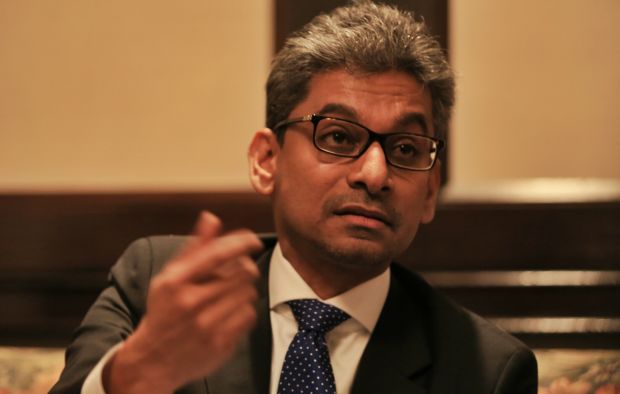KUALA LUMPUR, Feb 22 — The Malaysian Bar said today it is disappointed with the Federal Court’s decision to grant custody of S. Deepa’s son to ex-husband Izwan Abdullah, as the latter had defied an earlier High Court ruling on the matter and had snatched away the child from his former wife.
Malaysian Bar president Steven Thiru said that the Federal Court’s decision in Deepa’s case could be viewed as an approval of Izwan’s actions in abducting the boy (Mithran), which ran contrary to the Seremban High Court’s view as it had described the ex-husband’s conduct as “an act of contempt of the grossest kind”.
“He has yet to be held accountable for his wrongdoing. It was recently reported that he has threatened to kidnap the daughter, notwithstanding the Federal Court’s order granting custody of the daughter to the ex-wife. His belligerence and insolence warrant condemnation, and his refusal to obey court orders must not be condoned,” Thiru said in a statement this evening.
He pointed out that the apex court had also apparently ignored Izwan’s history of domestic violence, and that Deepa had reportedly lodged more than 25 police reports relating to domestic violence during their marriage and had obtained an interim protection order to protect her from further abuse in August 2013.
The Seremban High Court also noted that Izwan had a previous criminal conviction and had no qualms being involved in criminal activities, findings which were left undisturbed by the Court of Appeal, according to Thiru.
“The Malaysian Bar is also very concerned with the apparent last-minute decision by the Federal Court to interview the children in court, before the custody order was varied. This was improper, and undoubtedly an intimidating and scarring experience for the children.
“In jurisdictions such as England, Singapore and Australia, judges do not routinely interview children to ask them which parent they wish to live with. Instead, a welfare report on the children is done well before the court decides on custody,” the lawyer said, adding that such a report was usually prepared by experts in child psychology or welfare who would spend time with the children to assess their best interests of the children before advising the court on the next course of action.
Thiru also shot down proposals for a tribunal comprising of both Shariah and civil court judges to resolve inter-faith custody disputes, saying that such a move would be counter-productive and had no constitutional basis.
“It would further have the effect of elevating the Shariah courts to the level of the civil courts, which is contrary to our constitutional scheme.
“It would also subject non-Muslims to adjudication by Shariah court judges, which is plainly unconstitutional. Critically, it would lead to an intrusion into the clearly defined jurisdiction of the civil courts under the Federal Constitution and statute law,” he stressed.
Deepa had previously won custody of her two children in the civil High Court, but the police did not act on the civil court’s order to return the son Mithran snatched away by Izwan, due to a custody order in his favour by the Shariah courts.
The Federal Court last week divided the custody of Mithran and his sister, Sharmila, after interviewing them, handing the son to his Muslim convert father and the daughter to Deepa, a Hindu.
The court also ruled that matters involving custody or divorce in civil marriages should only be handled by the civil courts and not the Shariah system, unless both husband and wife are Muslims.
The Federal Court did not say whether the civil courts or the Shariah courts would have the power to decide on the religious status of children who were unilaterally converted to Islam.
Deepa subsequently pleaded for the country’s laws to be changed to spare other single mothers from her traumatic experience of being separated from her son, urging the authorities to ensure her case will be “the last case in Malaysia”.
Last December 30, the Court of Appeal in a 2-1 decision reversed a lower court’s order quashing the unilateral conversion of Indira’s three children to Islam, stating that only the Shariah courts have the jurisdiction to determine whether a person is a Muslim.



















